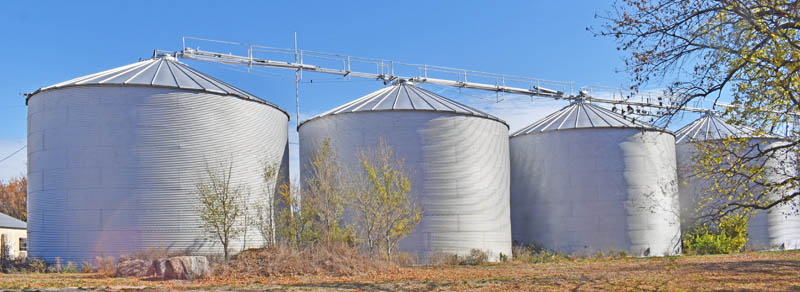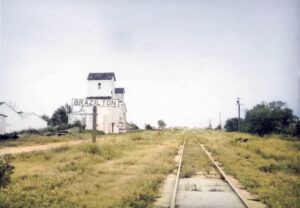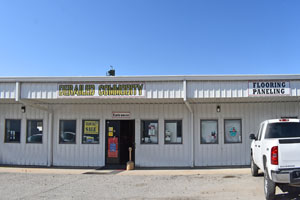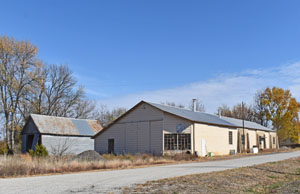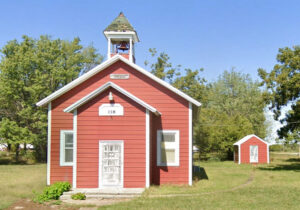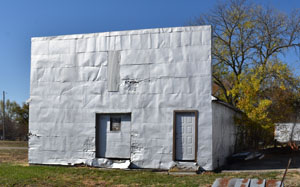Brazilton, Kansas, is a tiny unincorporated community in Walnut Township of Crawford County. Its post office closed decades ago, making it an extinct town.
The town was founded by Thomas Brazil and Harry M. Clark in 1882 and named after Brazil, the owner of the land on which the town was located. A post office was established on October 5, 1882, with W.H. Ryan as the postmaster. It was a station and shipping point on the Pittsburg & Chanute division of the Atchison, Topeka & Santa Fe Railroad. Early on, it contained two stores, a lumber yard, about 12 houses, 50 inhabitants, and shipped about 50 car loads of grain in 1882.
In 1910, Brazilton was still a station on the Atchison, Topeka, and Santa Fe Railroad. At that time, it had a money order post office, express, telegraph, and telephone services, some good general stores, a hotel, blacksmith shops, schools, and considerable shipping. The Catholics and Lutherans were the leading religious denominations. Farming was extensively carried out in the area, and the soil was of excellent quality. In 1910, Brazilton reported a population of 150.
A furniture, flooring, and home improvements store called Derailed Commodity was formed by Henry Smith and his sons Larry and Miles in 1965. Formed initially to market railroad and insurance salvage, the company began to merchandise building supplies such as paneling and lumber in August of 1967. In 1969, they began marketing carpets and flooring. Today, this is the only business left in tiny Brazilton. It continues to be operated by the founders’ children.
Brazilton’s post office closed on June 17, 1966.
The railroad tracks were removed in the 1990s.
Brazilton is located along highway K-3, eight miles northwest of Girard, the county seat.
©Kathy Alexander/Legends of Kansas, updated April 2025.
Also See:
Extinct Towns of Crawford County
Sources:
Blackmar, Frank W.; Kansas: A Cyclopedia of State History, Vol I; Standard Publishing Company, Chicago, IL 1912.
Cutler, William G; History of Kansas; A. T. Andreas, Chicago, IL, 1883.
Pittsburg Memories
Wikipedia

